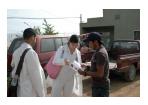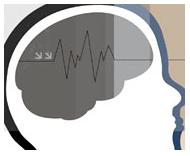Universidad Xochicalco (Mexico)

The Universidad Xochicalco was established in 1974 as a medical school. In the 1990s, the University expanded to offer other academic programs, and also opened multiple campuses. The University now has campuses in Ensenada, Tijuana, and Mexicali. Universidad Xochicalco’s website>>
Community Medicine Program
 Community activities of the School of Medicine Xochicalco are made in cities which are vulnerable to marginalization and epidemiology. By providing health services in these communities, medical students gain valuable skills. Part of the program involves holding health fairs to educate vulnerable populations and screen them for diseases. The program promotes humanism and the spirit of service, and proactively seeks to improve the quality of life of the population through health education and preventive measures and early detection of diseases. Learn more>>
Community activities of the School of Medicine Xochicalco are made in cities which are vulnerable to marginalization and epidemiology. By providing health services in these communities, medical students gain valuable skills. Part of the program involves holding health fairs to educate vulnerable populations and screen them for diseases. The program promotes humanism and the spirit of service, and proactively seeks to improve the quality of life of the population through health education and preventive measures and early detection of diseases. Learn more>>
Psychology Extension
 Under the leadership of Lic. Guadalupe Valdés Carpio, professor of Developmental Psychology in the Faculty of Psychology, many distinct activities in the General Hospital of the City of Ensenada have come to fruition, including diverse programs focused on Early Childhood Development for newborns to 4 year-olds, some of them with disabilities.
Under the leadership of Lic. Guadalupe Valdés Carpio, professor of Developmental Psychology in the Faculty of Psychology, many distinct activities in the General Hospital of the City of Ensenada have come to fruition, including diverse programs focused on Early Childhood Development for newborns to 4 year-olds, some of them with disabilities.
Students from the Psychology department participate in this multidisciplinary program, and interact with community members of different backgrounds. Community programs are a major component of the curriculum at Universidad Xochicalco, with the objective of promoting civic values and social responsibility in the students. The young children who receive these services come from low-income backgrounds, and the parents do not pay anything for the program.
The children are evaluated by a pediatrician and, based on their diagnosis, are sent to the area coordinated by Lic. Valdés. There the children participate in developmental stimulation programs. They focus on activating the senses using sounds and didactic toys such as bells, colorful objects, toys with varying textures, and flavors and smells. The work does not end there. The Psychology students also participate in a training program for parents so that they can continue implementing the programs at home, and thus obtain better results. Learn more>>